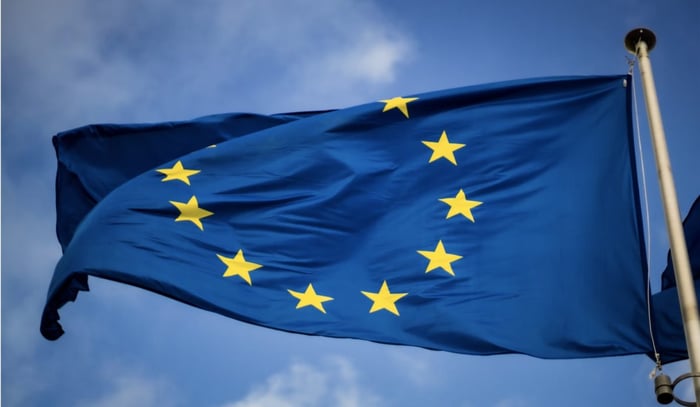INSIGHT by ClientEarth


Four environmental NGOs are taking the European executive to court to stop the EU labelling fossil gas as ‘sustainable’ in its sustainable finance rulebook, known as the Taxonomy.
The NGOs argue that this classification is unlawful, as it clashes with a number of key EU laws, in particular the Taxonomy Regulation itself.
Gas is a highly polluting and harmful fossil fuel, on top of being an expensive source of energy that has been at the centre of the current energy and cost of living crisis.
ClientEarth, the WWF European Policy Office,Transport & Environment (T&E), and BUND (Friends of the Earth Germany) are today filing a case in the Court of Justice of the European Union against the European Commission’s refusal to remove fossil gas from the EU’s sustainable finance Taxonomy.The Taxonomy’s Complementary Delegated Act (CDA), adopted controversially in July 2022, classifies certain uses of gas as environmentally ‘sustainable’.The NGOs argue that these uses of gas cannot be considered sustainable given their negative impacts on the environment. Fossil gas is a high-carbon source of energy when burnt and, when leaked into the atmosphere, its impact on climate change is more than80 times greater than CO2 over 20 years.Classifying fossil gas as 'sustainable’ also risks worsening the EU’s dependency on fossil gas by increasing EU demand for gas, which must then be imported. This would expose the EU to more volatility, dependence on producing countries and supply crises in the future – with potentially further devastating impacts on household bills.In the court case, the NGOs hold that the CDA clashes with EU laws such as the Taxonomy Regulation itself and the European Climate Law. It also goes against the EU’s obligations under the Paris Agreement.The Taxonomy Regulation requires that the classification of technologies be science-based. However, the European Commission went against the opinion of its scientific advisers when it labelled these uses of gas ‘sustainable’.The Commission also ignored the European Climate Law’s requirement to assess and consider the climate impact of the CDA.An under-acknowledged issue is that the CDA is at odds with many financial institutions’ policies on gas. The European Investment Bank’s 2019 Energy Lending Policy effectively ruled out fossil gas financing, with its president asserting that “gas is over”, while the global green bond market already has a common practice to exclude fossil gas.
"Labelling fossil gas as ‘sustainable’ is as absurd as it is unlawful. It goes against the EU’s own scientific advice and fundamentally undermines the credibility of the EU’s climate action. Fossil gas is not clean, not cheap and not a secure source of energy.
“The Taxonomy is meant to support the EU meeting its climate targets. Instead, this label stands to do the opposite, by channelling additional investments into this harmful energy source and away from genuinely sustainable sources of energy. We’re taking the Commission to court in the hope of restoring some credibility to the Taxonomy and avoiding this huge risk to the climate and people’s energy security.”
-A spokesperson for ClientEarth, the WWF European Policy Office, T&E and BUND
A hearing at the General Court could be held in the second half of 2024 and a judgement released in 2025. The desired end result would be a ruling that forces the Commission to review the Complementary Delegated Act. ClientEarth is a non-profit organisation that uses the law to create systemic change that protects the Earth for – and with – its inhabitants. We are tackling climate change, protecting nature and stopping pollution, with partners and citizens around the globe. We hold industry and governments to account, and defend everyone’s right to a healthy world. From our offices in Europe, Asia and the USA we shape, implement and enforce the law, to build a future for our planet in which people and nature can thrive together.WWF is an independent conservation organisation, with over 30 million supporters and a global network active through local leadership in nearly 100 countries. Our mission is to stop the degradation of the planet’s natural environment and to build a future in which people live in harmony with nature, by conserving the world’s biological diversity, ensuring that the use of renewable natural resources is sustainable, and promoting the reduction of pollution and wasteful consumption. The European Policy Office contributes to the achievement of WWF’s global mission by leading the WWF network to shape EU policies impacting on the European and global environment.Transport & Environment (T&E) is a European umbrella for non-governmental organisations working in the field of transport and the environment, promoting sustainable transport in Europe. T&E’s vision is a zero-emission mobility system that is affordable and has minimal impacts on our health, climate and environment.BUND (Friends of the Earth Germany) is a grassroot organisation with more than 650.000 members and supporters, dedicated to the protection of the environment and social justice. The foundation are more than 2000 local volunteer groups, who carry the regional and federal structures of the organisation. BUND is dedicated to a democratic decision making process within its structure and mainly financed through membership fees and donations. All opinions expressed are those of the author and/or quoted sources. investESG.eu is an independent and neutral platform dedicated to generating debate around ESG investing topics. investESG
investESG

